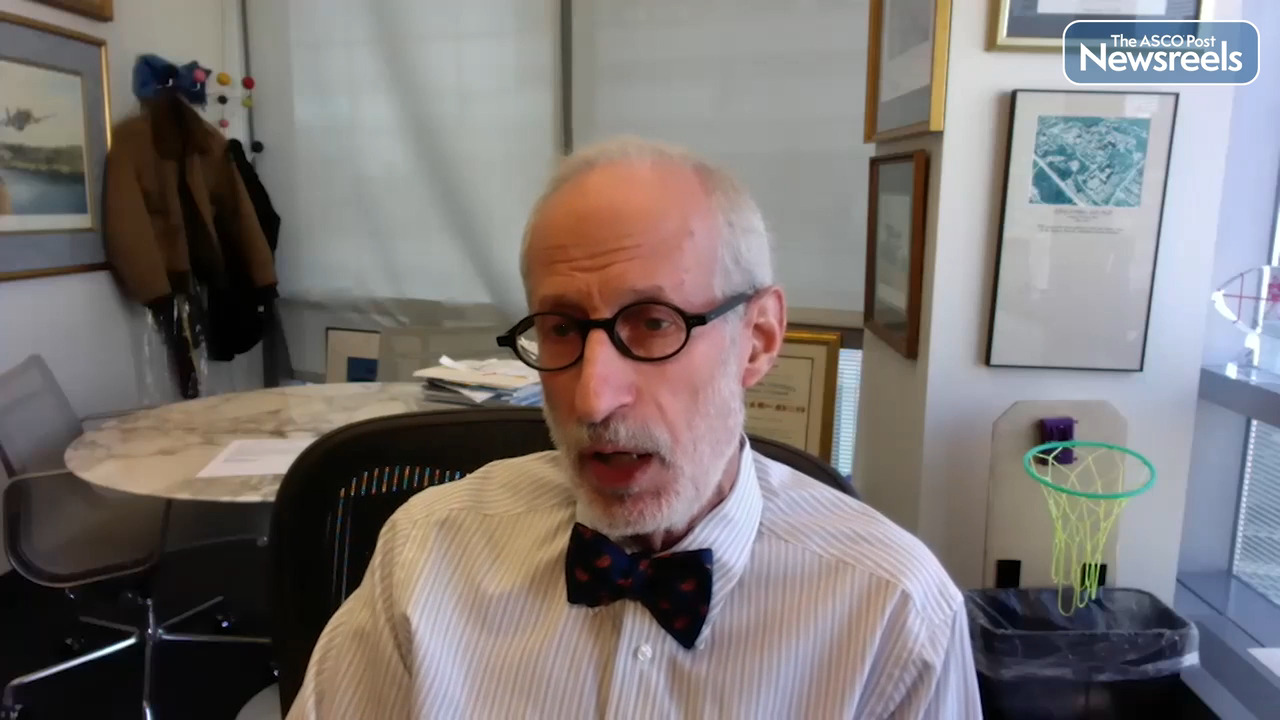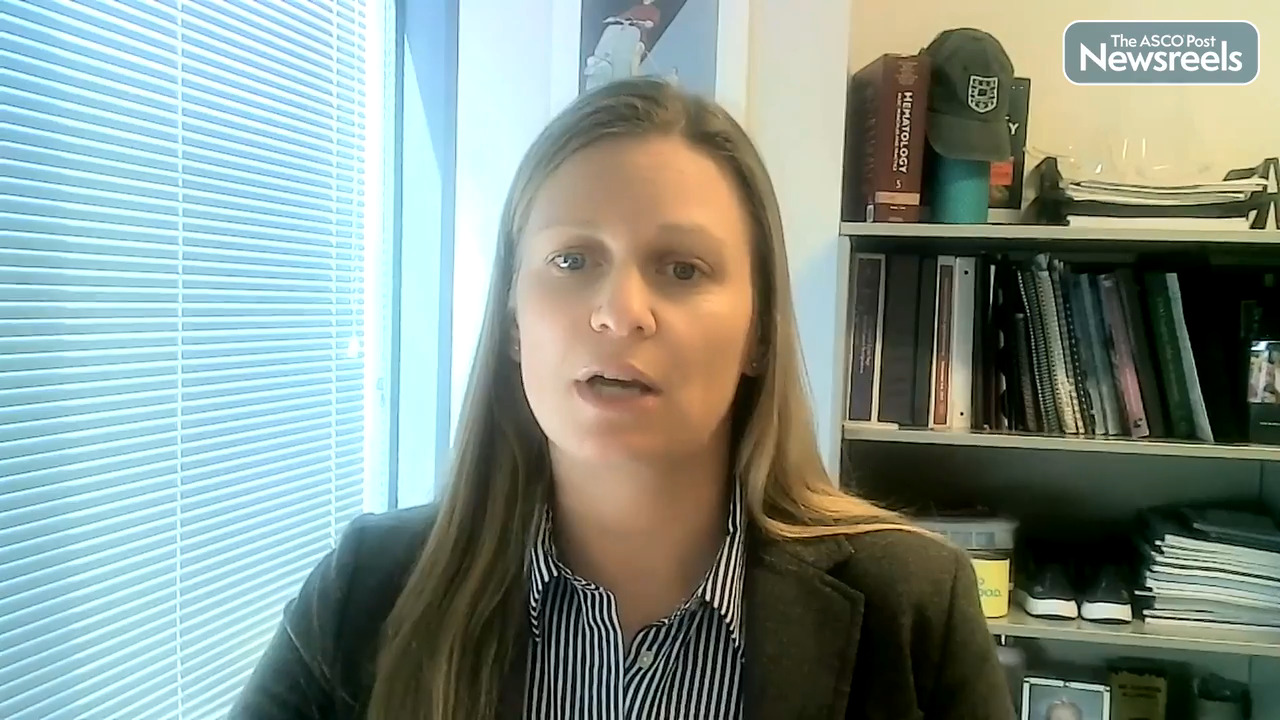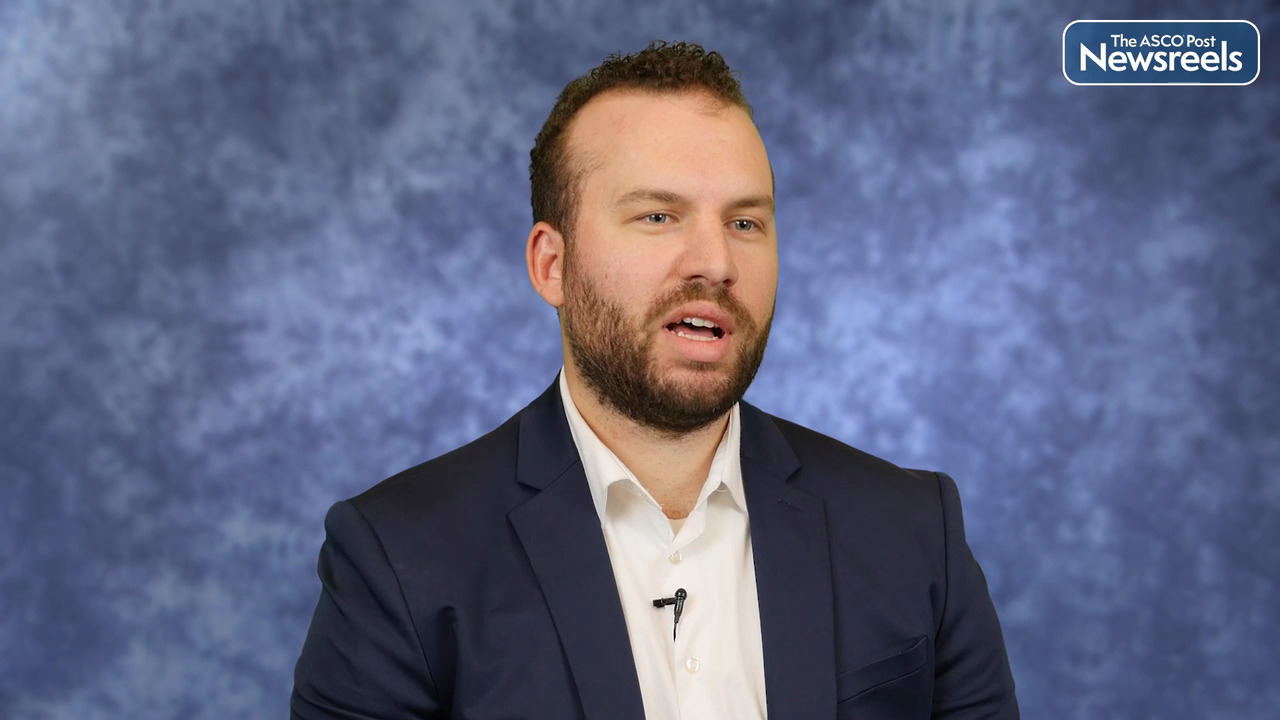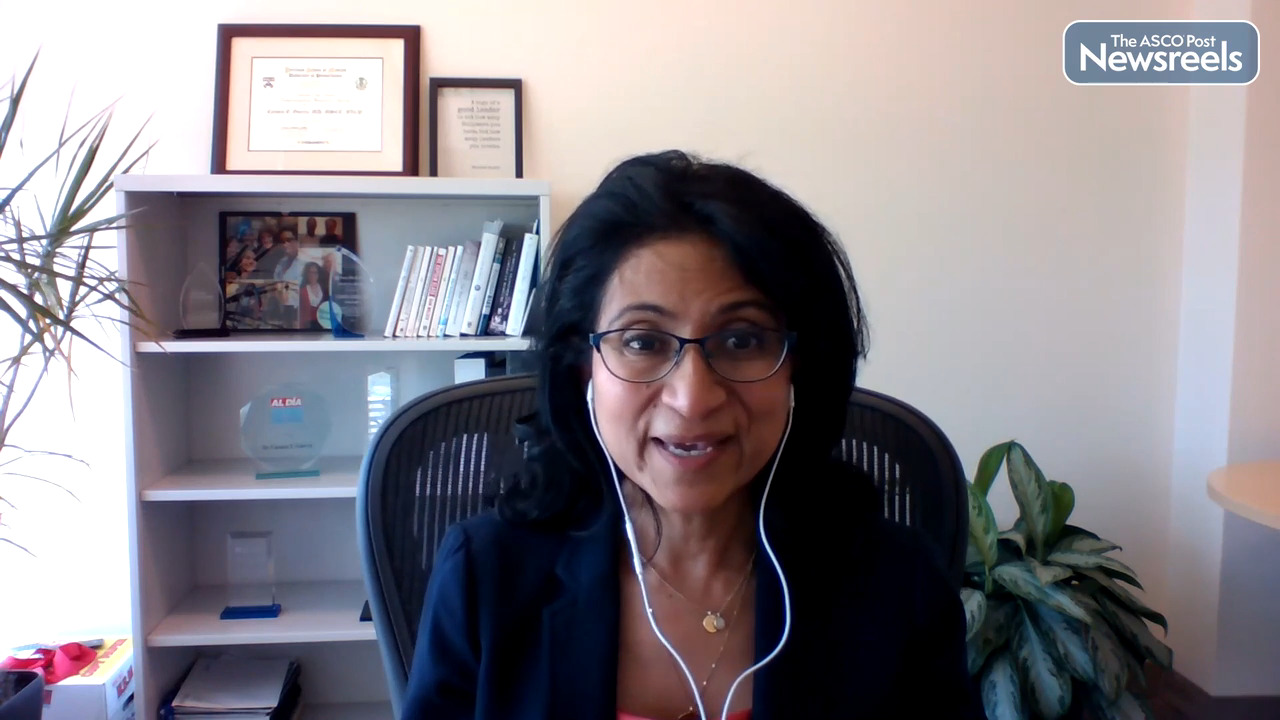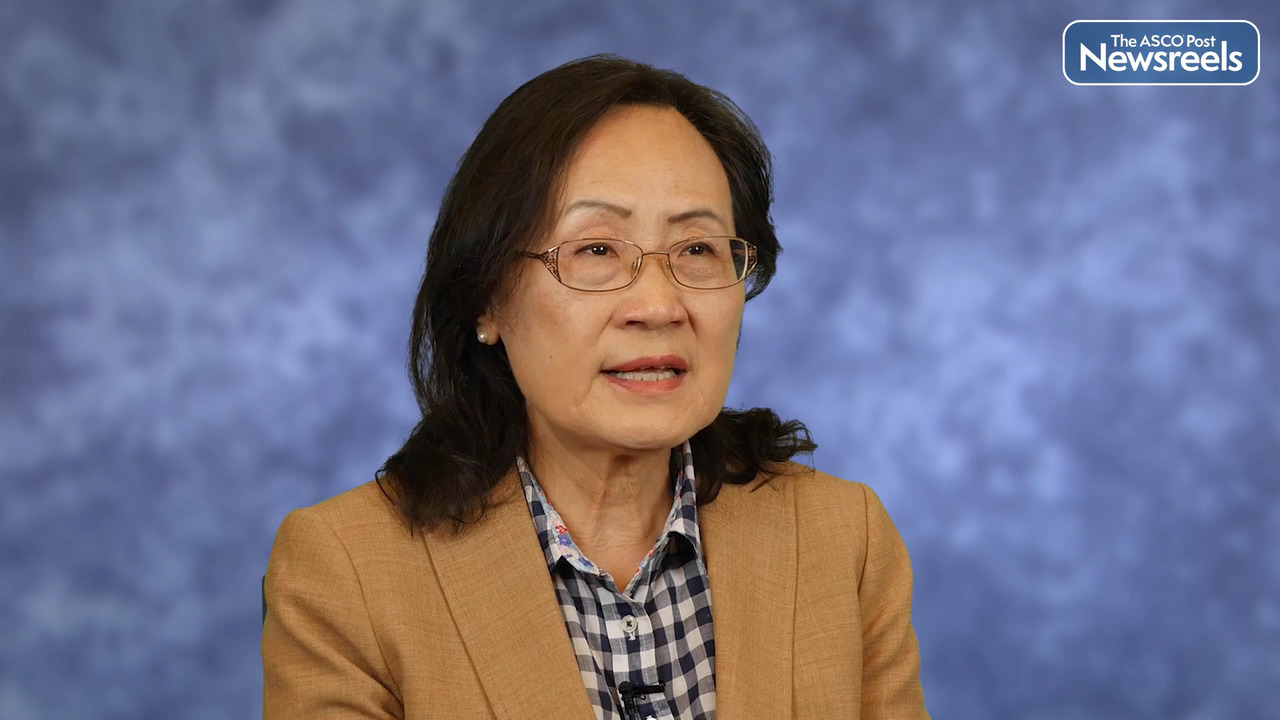Diana Azzam, PhD, on Pediatric Cancers: Efficacy of a Precision Medicine Approach
AACR Annual Meeting 2023
Diana Azzam, PhD, of Florida International University, Robert Stempel College of Public Health and Social Work, discusses her study results, which showed that treatment protocols guided by functional precision medicine yielded significantly longer progression-free survival and improved overall response in pediatric patients with relapsed or refractory cancer, compared with their previous treatment and standard of care. (Abstract LB358)
Transcript
Disclaimer: This video transcript has not been proofread or edited and may contain errors.
Most precision oncology approaches are based on genomic profiling, which identifies actionable mutations in only 10% of cancer patients. It's even challenging in childhood cancer patients with relatively few driver mutations. Functional precision medicine is a relatively new field that integrates with genomic profiling and combines a rapid high-throughput drug testing on live patient tumor cells in an attempt to identify novel treatment options for refractory patients.
Our study is a pilot single-arm study that is the first in the United States to illustrate the feasibility and clinical impact of functional precision medicine in relapse refractory childhood cancers. In collaboration with Nicklaus Children's Hospital, we enrolled 25 young adults with both hematological and solid cancers, and we used a FDA-approved drug library that encompassed 40 formulary drugs available at Nicklaus Children's Hospital, as well as 47 non-formulary drugs that are approved by the FDA, including phase three clinical trial candidates.
So functional precision medicine data and molecular data were prospectively generated and provided to a molecular tumor board of clinicians to support clinical decision for each patient. Compared to genomics-only, we found that ex vivo drug testing were able to provide results in a clinically actionable timeframe. A median time was seven days, which is faster than genomics-only, and this is particularly important for patients with aggressive progressive cancers.
We also found that ex vivo drug testing provided recommendations in a higher fraction of patients compared to genomics-only testing. Our results also showed that patients that were guided by FBM had improved overall response and longer progression-free survival compared to those that were not guided by FBM and also compared to their own previous regimen.
Thus, we show technical feasibility of implementing functional precision medicine in relapsed refractory childhood cancer in the clinical practice.
When we clustered drug response profiles, we found that patients of the same subtype of cancer did not cluster together. What was also interesting is that drug response profiles from minority populations were different than other ethnic groups. So based on that, we just received a new grant from the National Institute of Minority Health and Health Disparities, as part of the RCMI center at Florida International University, to start a study and enroll 65 additional patients in South Florida. We are also going to use a novel machine learning approach to uncover specific biomarkers, along with targeted drugs that may be specifically expressed in minority populations.
So the response and survival of the patients based on FPM is very promising and warrants a large scale randomized clinical trial that will basically validate the benefit of functional precision medicine in relapsed refractory cancers. We're in the process of setting up a CLIA lab in the state of Florida for functional drug testing in order for us to implement a large scale randomized clinical study and really test the efficacy of functional precision medicine.
Related Videos
The ASCO Post Staff
Jeffrey S. Weber, MD, PhD, of the Perlmutter Cancer Center at New York University Langone, discusses efficacy and safety results from the phase II KEYNOTE-942 trial, which showed that a personalized mRNA-based cancer vaccine, combined with the immune checkpoint inhibitor pembrolizumab, improved recurrence-free survival compared with pembrolizumab alone in patients with high-risk melanoma. The clinical benefit was observed regardless of the tumor mutational burden status. (Abstract CT001)
The ASCO Post Staff
Lindsay L. Peterson, MD, of the Washington University, St. Louis, discusses the value of physical activity in improving cancer prognosis, especially for patients with breast or colon cancer. Aerobic exercises and resistance training are recommended during and after treatment. Exercise may help inhibit tumor growth, improve quality of life by decreasing fatigue and anxiety, build muscle mass, increase physical function, and reduce surgical complications and treatment delays.
The ASCO Post Staff
Harry Klein, PhD, of Dana-Farber Cancer Institute, discusses MatchMiner, a software platform launched in 2017, that matches patients with appropriate clinical trials of targeted therapies. The platform uses data on the genetic features of a patient’s cancer, as well as clinical data, to identify trials at Dana-Farber for which the patient might be eligible. MatchMiner can also help recruit patients who meet the trial’s eligibility requirements. (Abstract 1067)
The ASCO Post Staff
Carmen E. Guerra, MD, MSCE, of the University of Pennsylvania Abramson Cancer Center, discusses the ways in which community outreach, programs to help patients access cancer clinical trials, and institutional policies such as ASCO’s Just Ask program can help increase equity, diversity, and inclusion in cancer clinical trials and reduce unconscious bias.
The ASCO Post Staff
Sherry X. Yang, MD, PhD, of the National Cancer Institute, discusses findings from the TAILORx trial, which showed that, despite chemotherapy, patients with high recurrence scores continue to have a poor prognosis. This result suggests the need to develop new management strategies for patients with early-stage breast cancer. (Abstract LB119)
